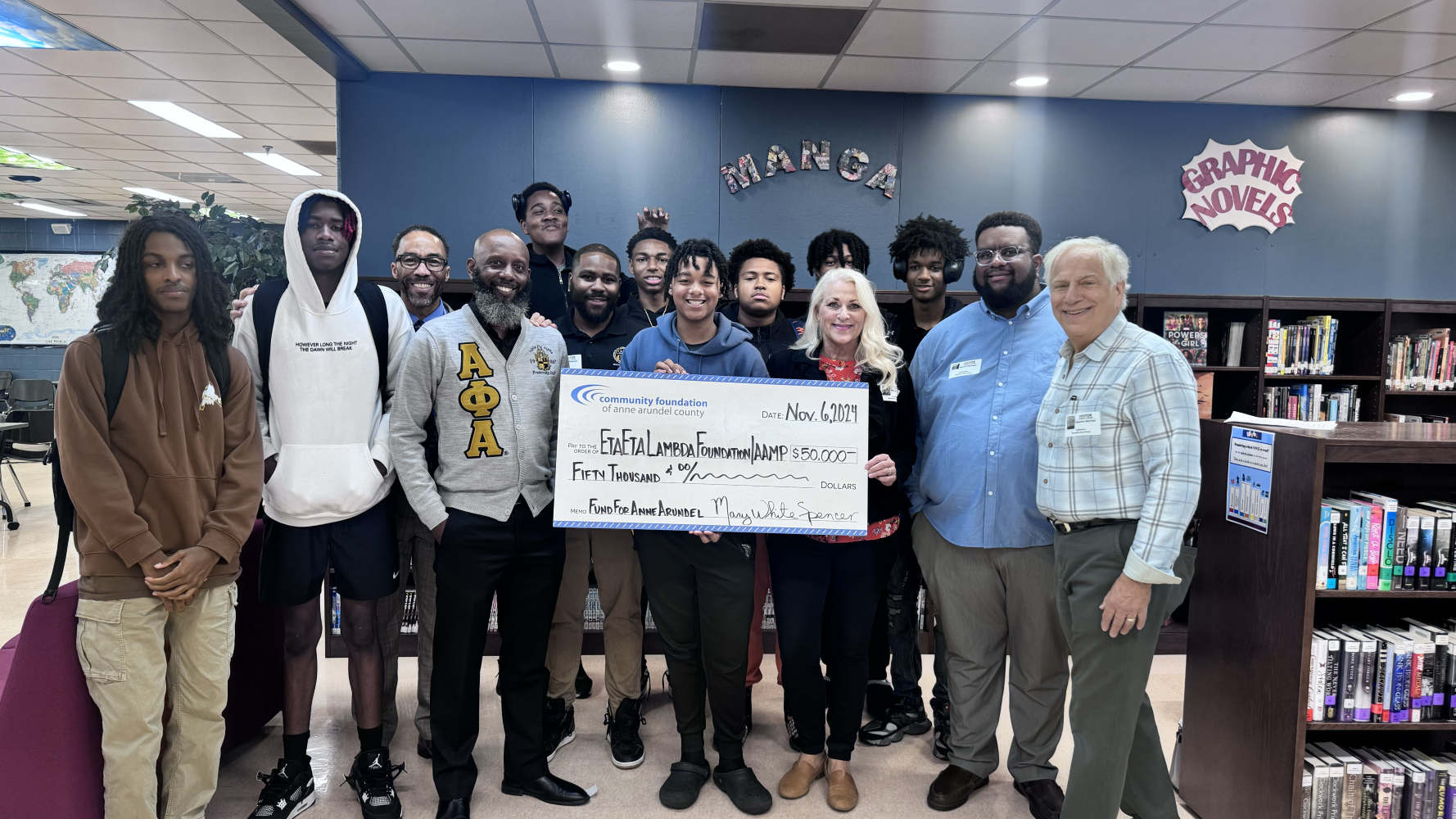
Eta Eta Lambda
Nonprofit Partner
PLANTING SEEDS OF POTENTIAL: ALPHA ACADEMY YOUTH MENTOR PROGRAM OFFERS OPPORTUNITIES
On a crisp November afternoon, a room full of teenage boys listen—some skeptically, some curiously—as an etiquette specialist shares tips they’re not sure they’ll ever need. But Stephen Williams assures them they will. Stephen, Chairman of Eta Eta Lambda’s Alpha Academy Mentoring Program, knows that because of the program, their futures may be brighter, fuller, and filled with opportunities they never imagined.
In 2024, Eta Eta Lambda received a grant from CFAAC’s Fund for Anne Arundel (FFAA) to launch the Alpha Academy Youth Mentor Program at Annapolis High School. The program pairs 30 young men with dedicated mentors for bi-weekly sessions, equipping them with life skills, academic support, and emotional guidance to navigate challenges, be successful in life, and become productive members of their communities.
Originally a Saturday session for elementary through high-school-aged boys, Alpha Academy successfully piloted a high school program at Arundel High School two years ago. With FFAA funding the initiative expanded to Annapolis, following the same proven structure.
Through the Alpha Academy students are paired with their mentors for the duration of high school, including support outside of school and during the summer. Once matched, both the mentee and mentor complete an agreement form and a goal-setting form shared with the mentee’s parent. The goal-setting form lists at least three key objectives for the student. Progress is tracked using three key metrics—academics, school attendance, and behavior—helping mentors identify areas for improvement. Parent feedback is also very important, said Stephen.
Every other week, the students gather together to learn about career opportunities and essential life skills including financial literacy, college applications, effective study habits, time management, and critical thinking to help them succeed now and post-graduation. The FFAA grant also allowed Alpha Academy to hire Minds in Motion, a team of Black male clinicians, to lead two-hour, in-school group therapy sessions, helping at-risk teens recognize emotional challenges, manage impulsivity, and develop healthy behaviors.
“Through Minds in Motion, the students are getting support from somebody that looks like them, making it easier for them to relate,” said Stephen. “They are learning that it's okay to talk to somebody, go to therapy, and lean on their mentors if they feel like they’re going through something.”
The grant will also fund potential internships with student stipends and wealth-building strategies to invest the stipends. Beyond life skills, the program offers bonding experiences such as fishing, attending college and career fairs, and completing community service projects.
After looking at the success of the Arundel High School program and seeing improvements in grades, attendance, and behavior, Stephen is optimistic about the program’s lasting impact and sustainability. He plans to stay connected with graduates, check on their progress, and invite them to return as mentors to ensure the program’s long-term growth. He also hopes to expand the initiative to all Anne Arundel County public high schools.
Stephen stresses that the potential to succeed is the same for the mentees as any other child. “They just need to know that someone cares about them, and that we are putting them on the path to success,” he said. “The reason that I continue to chair this program is to make a difference in the lives of as many young men of color as possible, to change their way of thinking, and to provide resources to underserved neighborhoods, as well as experiences and opportunities that they wouldn’t have without the program.”